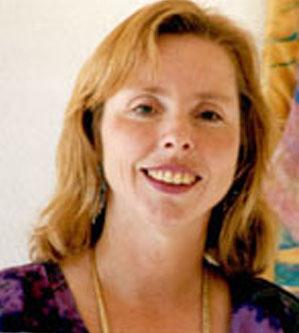
By Judith Costello
After visiting the Holocaust Museum in Washington D.C., my son, Peter, wanted to know more about World War II. He asked, “Were there Catholic heroes back then?”
“Yes,” I told him with great conviction but little knowledge. So we began researching. We came across a name for Poland and contacted a Polish journalist who shared the details with us.
The hero we found is Witold Pilecki. He was a captain in the Polish Army when Hilter took over his country. He and his comrades went underground, meeting in secret, as Nazi bullies strutted through the streets. The people of Poland saw thousands of people entering Auschwitz.
Pilecki had a wife and two young children. But he was a soldier and a man of faith before all else. He came up with a plan to help his homeland. He would voluntarily become a prisoner of the concentration camp in order to document the atrocities there. This report would be smuggled to the Allies who would be outraged. He envisioned that airplanes would drop guns into the camp as he organized a resistance movement among the prisoners. They would all escape and the Allies would bomb the gas chambers.
And so, this young Catholic walked outside after curfew to allow the Nazis to grab him. He was tortured for two days and taken to Auschwitz in a weakened state. He was sickened by the horrors there. But he tried to give hope and inspiration to the people who were beaten, starved, tortured and subjected to experimentation. He organized the distribution of their limited goods. He planned a resistance movement and inspired inmates to dream of freedom. But when several prisoners tried to escape early, his plans to lead 500 out of the prison were exposed. Pilecki escaped with two other men.
His report did make its way to the attention of some in the Allied forces. But his vision for freeing the victims of Auschwitz was not approved. The military leaders felt they had the plan that would lead to the quickest end to Hitler’s stranglehold on Europe.
Pilecki went from Auschwitz to Warsaw where he participated in that bloody uprising. He successfully led a group to disrupt German supply routes. After the war, one system of terror was traded for another in Poland. The communists took over and began looking for scapegoats.
Pilecki was singled out as an “enemy of the state” by a former friend who had joined the cause for state control. Pilecki was accused of sharing information with other countries since he shared reports with the Polish Army in exile. He was tortured again.
In a photograph of this man at his trial, he appears calm. It is the face of someone who knows he has done his part to free the spirit of his fellow men. It would be 30 more years before another Polish national would take up that powerful message, “Be not afraid.”
Pilecki knew brutality, starvation and imprisonment. But those things can’t block the light or dim a longing for freedom.
He was convicted and shot in the back on May 25, 1948. He was 47 years old. His name was buried in Polish history until his country was freed from communist rule.
Witold Pilecki expressed agony and hope in his report from Auschwitz. “We became mere numbers …we were building the crematorium for ourselves … Sometimes, when strength was missing … an hour seemed to be a century … Some slide into a moral sewer. Others got their characters cut like crystal. Blows painfully cut into our bodies, but in our souls they found a field to be ploughed. All of us went through such a transformation. Like the ploughed soil, (fears) are pushed aside to create a fertile furrow.”
Michael Tyrpa is dedicating himself to reviving the memory of this hero. He writes from Krakow, “Many don’t know this, but from June 1940 until the end of 1942 the great majority of Auschwitz’ prisoners were Polish Catholics. During the Nazi occupation, one-third of our population was wiped out.”
Tyrpa wrote to Pope Benedict XVI, asking that Pilecki be considered for beatification as a Christian Knight of the 20th Century. He began a movement called “Let’s Reminisce About Witold Pilecki” and has a Web site at www.witoldsreport.blogspot.com.
I am inspired to believe that in the fertile soil of our hearts, the courageous example of Pilecki, might take root. And the light that conquers the darkness will use new generations to transform our world.
(Judith Costello is a freelance writer who grew up in Davenport and now lives in rural New Mexico. Her Web site is www.thedailychristian.com.)








